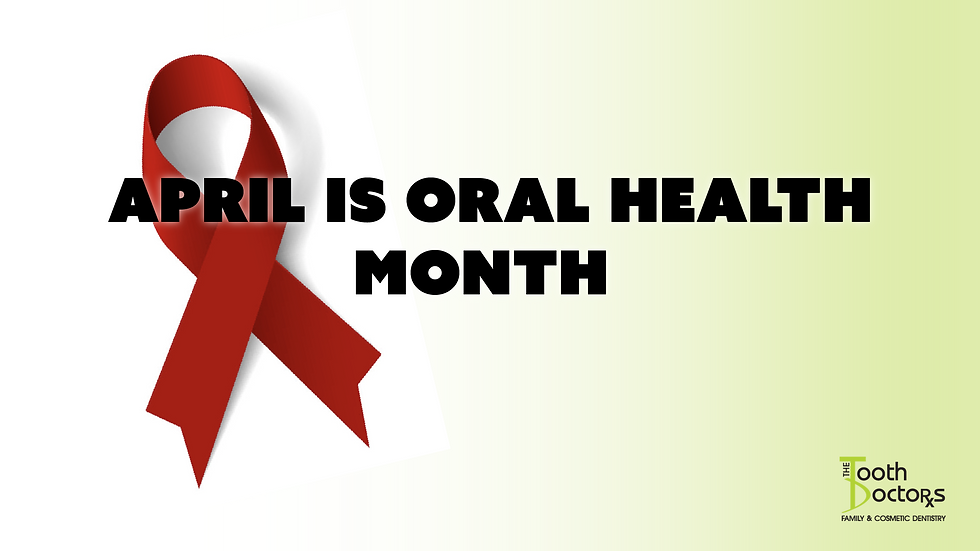Fluoride - Why We Might Recommend It
- The Tooth Doctors

- May 11, 2017
- 3 min read
by Elizabeth
Common in many dental offices is the fluoride treatment. Some may remember having it done when they were a child, others have had it done at every hygiene appointment, whether as a child or adult.

Why might we recommend it at our office? There are 2 main reasons why we would recommend it to a patient. We offer it selectively depending on our findings throughout the hygiene visit. The first reason would be due to the patient’s caries risk, or the chances the person is to develop cavities. If this risk is high, we would recommend a fluoride treatment to reduce this risk. The second reason would be the patient’s dental sensitivity. If we see a person with regular cold or touch (brushing) sensitivity, we would recommend the fluoride treatment to ease this sensitivity along with some instructions at home. We also recommend it since there is no fluoride content in the water in the area, which leaves people more at risk for cavities, especially children who are constantly developing teeth and could greatly benefit from this extra strengthening. How does the fluoride treatment help in these cases? Caries risk: Every time we eat or drink anything other than water, the acidity of our mouths changes and starts “attacking” and weakening the enamel of our teeth. Basically, it starts removing the essential minerals of our teeth (calcium and phosphate), which weakens the teeth and makes them more prone to developing cavities. But, by having a fluoride treatment done on a regular basis at the dental office, this risk can be reduced. The fluoride will be absorbed by the teeth and also remain in the saliva to help the tooth bring back the minerals that are lost during the acid attacks. The time that our teeth are under this weakened state is reduced, therefore reducing the time for cavities to start forming. It is often recommended in children because they are generally at a higher risk for cavities (baby teeth are less strong than adult teeth and often kids haven’t developed an exceptional oral hygiene routine). Sensitivity: The main reason for dental sensitivity (to cold or touch) is recession, where the gums have gone down on the tooth and root surfaces become exposed. These surfaces are not covered by the protective layer of enamel and are more porous, resulting in sensitivity. This exposed layer, the dentin, contains multiple tubules which conduct signals to the tooth’s nerve and causes pain/sensitivity. By applying fluoride, these tubules become blocked and the signal can no longer be conducted to the nerve, resulting in reducing or relieving the sensitivity. Regardless of what reason a fluoride treatment is recommended, both need to be reapplied regularly (at each hygiene visit) to be most beneficial, since the amount of fluoride in the mouth is reduced over time. Many offices have multiple ways to apply this fluoride treatment (rinse, gel in trays, varnish) but we use the varnish method (a gel that is painted on the teeth). Compared to the other methods, it has an increased concentration of fluoride and a reduced risk of any side effects. This is because the product is applied directly to the teeth, hardens with the saliva (doesn’t move around) and any surplus is removed during the application so the patient does not swallow any. In regards to health concerns, it would take quite a high dose of fluoride to be ingested to cause any harm and with the varnish method, this risk is certainly reduced. I don’t believe I’ve had any patients report nausea or uneasiness after the application. If you have any questions, we would be more than happy to answer them at your next hygiene visit and discuss any concerns you may have regarding fluoride.




Comments